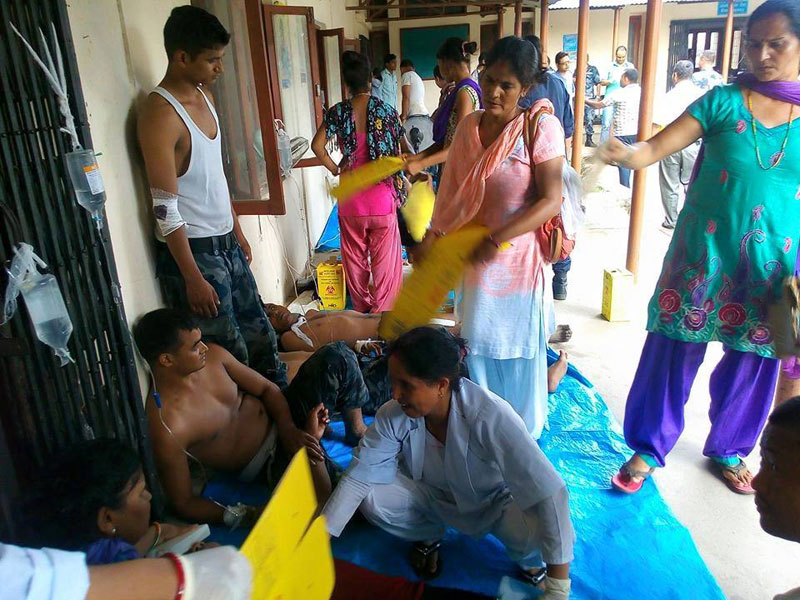Nepal Police dubs Amnesty's report on Kailali baseless
KATHMANDU: Nepal Police on Wednesday defended its action in the wake of massacre of security personnel in Tikapur, Kailali in August last year, and dismissed the Amnesty International's recent report, in which the security force was accused of resorting to brutality and violating human rights.
Eight security personnel and a minor boy were killed in Tikapur during violent protest staged by the supporters of Tharuhat movement.
Issuing a statement today, Nepali Police spokesperson DIG Madhav Prasad Joshi said no police authority breached basic human rights as guaranteed by national and international laws during the investigation as claimed in the report.
Joshi said the persons arrested in connection to the case were detained "on the basis of sufficient evidences as per the law" and the investigation was carried out using "scientific methods and resources as far as possible."
The international human rights organisation in its report published earlier this month had claimed, "The individual stories of the detainees varied in terms of where and how they had been arrested, the differences in their transfer from one location to another and some of the details of how they were tortured. However, they were consistent in that the torture began as soon as they were arrested and put in security vehicles, beaten at various police posts in the district and especially at the District Police Office (DPO)."
"Detainees told Amnesty International that they were not informed about the reason of their arrest, were not permitted to consult a lawyer from the time of their arrest and were not informed of the proceedings being initiated against them," the report read, "Their stories highlight how police tortured them to extract 'confessions'."
The Nepal Police statement, however, said "the suspects have not mentioned anything about coercion or torture while recording their statements at the District Attorney Office or the Kailali District Court."
It further added that none of the suspects filed any complaint while they "had the right to claim compensation and demand departmental action against the culprits by filing a case at the court in accordance with the Compensation Relating to Torture Act, 1996, if the victims had experienced torture or coercion during the investigation."
Police concluded that the report was unilateral and prejudiced as no any investigation official, government attorney and judicial official was consulted while preparing the report.
It claimed the report instead tried to influence the police investigation.
READ ALSO:






